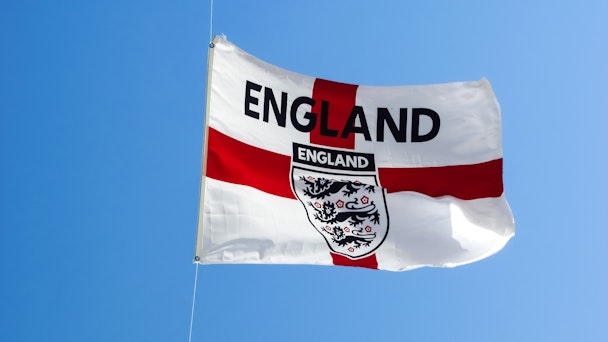Is UK sports sponsorship too xenophobic?
Sponsorship is at risk of becoming too entwined with the xenophobic culture that underpins Europe’s biggest sports, and marketers should look to the US for ways to offset that tribalism with high-impact cultural flashpoints, according to sports marketing experts.

Is UK sports sponsorship too xenophobic?
From Carlsberg’s patriotic rebranding of 19 pubs throughout England to an ad for Mars showing an armada of English fans crossing the channel to France as if they were invading the country, advertisers tapped national pride to varying degrees for the Uefa Euros 2016. While this is standard fare for marketers, its arguable that they were unwillingly caught up in the unnerving sense of xenophobia that’s tinged the cultural mood over the last month.
Scenes of Russian football hooligans brawling with their English counterparts at the start of the tournament foreshadowed the extreme nationalism that’s flickered into life post-Brexit. For a championship that was meant to embrace the diversity of its largest ever line-up of competing teams, it will arguably be remembered for all the wrong reasons.
“I feel like there were some interesting things building on the field that people could get excited about, whether it was the fact we had all the home nations competing, not to mention powerful stories about France and diversity,” said Dan Connolly, managing partner at Havas Sport and Entertainment Cake at an event held during the tournament. He explained how he felt “underwhelmed by “some of the marketing” from English brands, branding those efforts as “xenophobic and overly patriotic”.
“The xenophobic marketing from perhaps one or two brands plays very badly against the off-field coverage… a big tournament needs to cut through culturally and from a news perspective. The cultural aspects [of the tournament] that people have seen on the news haven’t always been positive and is what has to change before the end of it because what people see from a news sense is really how these tournaments are defined.”
It’s easy to get caught up in the very distinct cultures around sports in the UK, where unlike the US, local rivalries are an intrinsic part of many team-based sports due to the relatively short distance between clubs. While it can be a powerful emotion to harness, sports marketers at The Drum’s panel on the topic, held in association with Omnigon, believe that it’s cultural moments around film and music that give sponsorships the cut-through on a global scale time and again.
“In the US, sport is as important as film, music or fashion, which isn’t the case over here,” Nico Tuppen, managing director of Iris Sport, said at the panel. “We [the UK] go quite deep [into sport culture] because we understand the responsibility of partnering with a football team, a tournament or a player.”
One brand that has been doing this for some time is Coca-Cola. Like it has done for previous sponsorships, the brand partnered an up-and coming artist (Conrad Sewell) with an established name (Swedish superstar DJ Avicii) to come up with the soundtrack for its Euros 2016 campaign. The catchy tune played at pop-up dance events in France throughout the championship and will also accompany the brand’s other sports sponsorships this summer.
“I think if you’re credible in that area then you can activate. Consumers nowadays are very commercially savvy so need to be true to your own brand values,” said John Scurfield, head of sport and entertainment at MediaCom UK.
“Mars’ sponsorship originated from them being a non-official partner and actually utilising on-pack activity. The success on sales then built a wider relationship and they’ve benefited from additional access and being able to communicate their message fully.”
Sally Horrox, managing partner at Y-Sport, saw this “fusion between celebrity, music and sports” up close while she was working in the US during the Fifa World Cup. Fox Sports, Nike, Coca-Cola and US soccer’s governing body struck a four-way partnership that was tailored for brand, media and marketing objectives.
“Their vision was to create the biggest pop celebrity event last year and they measured their success against that as well as how well it engaged with the films and music videos at the time,” Horrox continued. “For the whole two months you were over there you could feel it [the campaign’s impact] down to the kids on the street through to what you watched on the TV and the campaign work [for the event] that was going on at the time.”
While sponsorship activations have some way to go, Connolly was quick to praise the efforts of brands like Vauxhall and Umbro that used influencers such as Spencer FC around the Euros in order to connect with younger fans. “The fans are getting content from the guys that they love… whether its something that’s on social media or at the top of a Google search. All those things are very positive.”
But positive change can only happen if the rights holders are doing more to empower sponsors, according to Horrox.
“The tribal nature [of sports] is not as present in the US because people don’t travel to [away matches] to support [their teams] because of the distance,” she continued. “We’ve got such a small number of sports in this country that it then determines the culture. But I think it [the tribalism in sports] is changing and the sports owners are trying to change the way they engage with brands.”
Additional reporting by Tony Connelly.


